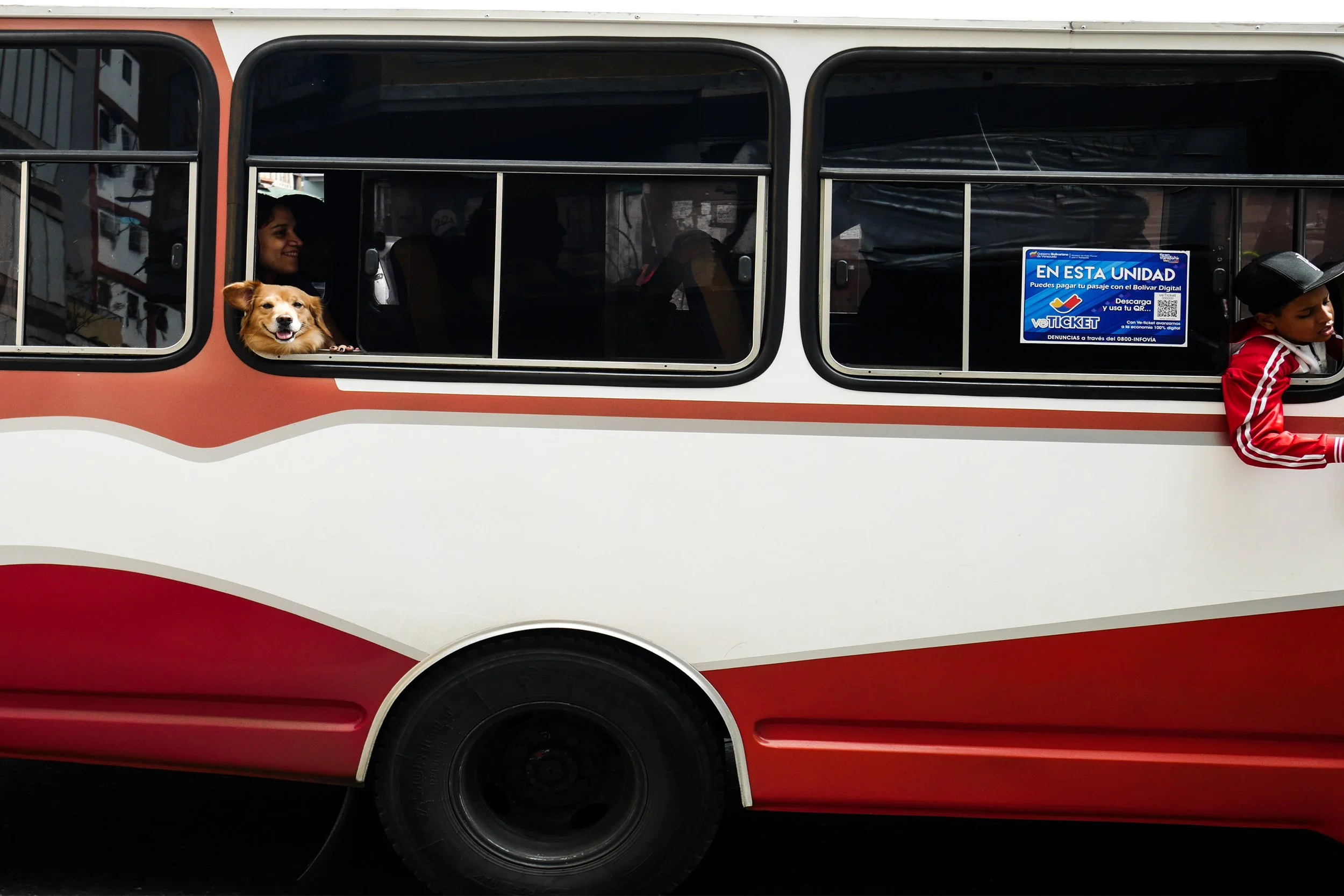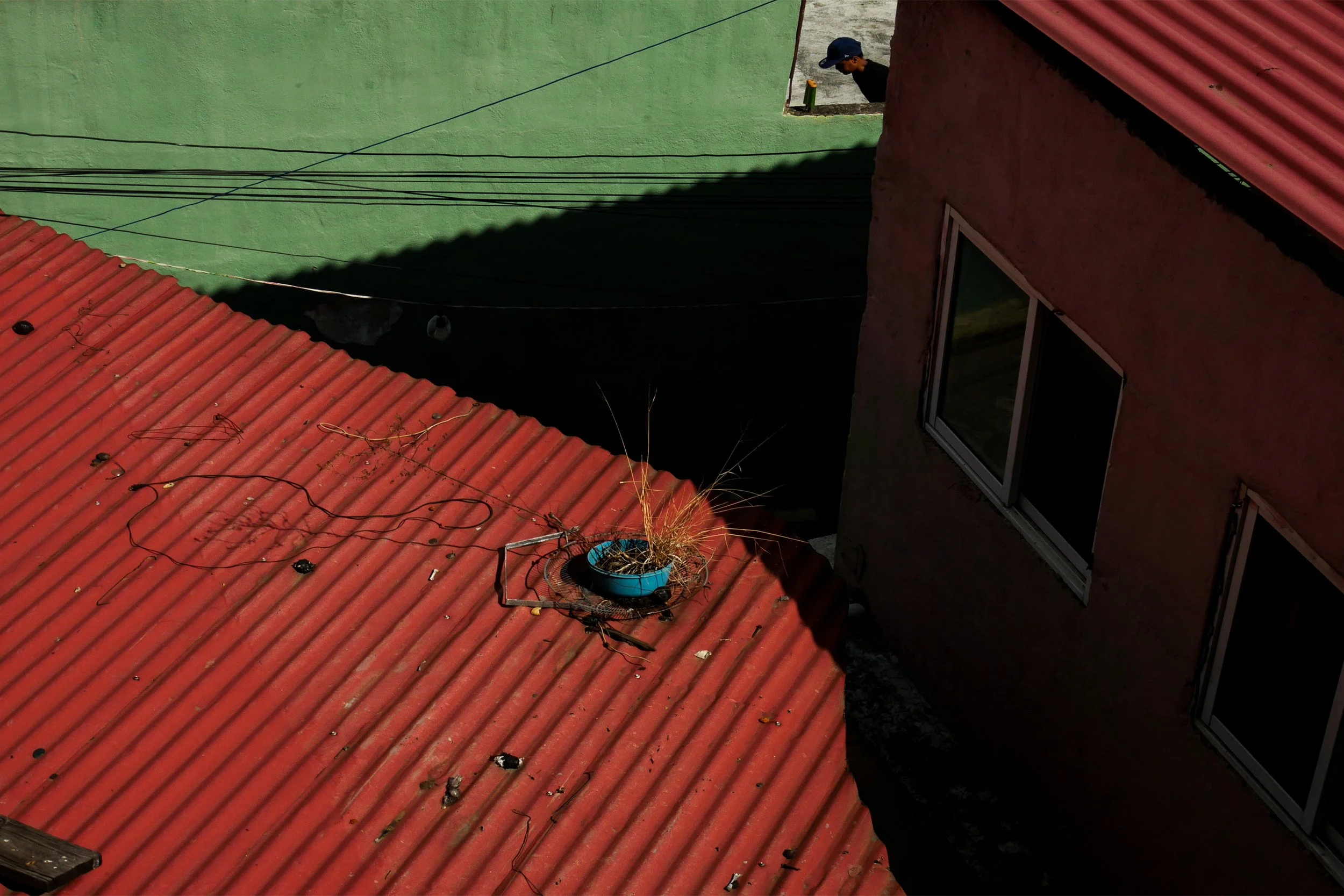212: Something is happening everywhere
Alexander Longa
Can you PLEASE tell me the area code for Caracas, Venezuela?
The area code for Caracas, Venezuela is 212.
Our school educates, researches, promotes, and shares. "212" is a virtual space focused on photography based in Caracas, featuring the work of both local and non-local artists. This platform aims to bring together various photographic genres, age groups, techniques, and perspectives, all connected by a shared love for photography.
- What was your first approach to photography?
I used to say I came to photography by chance, but now, reflecting on it, I realize that photography was always there in some way. One could say I had two approaches: the one that sparked my curiosity and the one that defined my life completely. The first was when I was a teenager. I used to skateboard, and there was always a photographer recording the tricks, always someone who would give you a camera or a cell phone and say, "you do it." At that time, I couldn't afford a camera, so I downloaded camera emulators on my phone, even though I didn't understand anything about the technique.
The second approach happened around 2019 through two friends who were already doing street photography. I had stopped skating and was working on the streets. I saw photography as a way to do something more, something beyond work. I remember telling a friend that I used to see interesting things on the block where he worked. He encouraged me to buy a cell phone and start documenting it. It somehow became a form of therapy because around those years, I started suffering from panic attacks. This caused me to spend many months at home, and photography helped me start going out again.
- What does being self-taught mean to you?
For me, it’s an alternative way to learn something. When I started taking photos, I couldn't afford to study photography. I didn't have the means. So, curiosity led me to the internet; I learned by watching videos, documentaries, reading blogs, and writing to photographers from many places (always asking for advice).
- What led you to color photography?
I started shooting in black and white purely out of necessity. On one hand, I was influenced by Asian photographers like Moriyama. On the other hand, Black and white was easier, it helped me simplify the scene. It allowed me to isolate the moment and focus on the raw, essential feel of downtown Caracas, without the "extra noise" that color introduces.
However, the final move to color was driven by two main things:
The huge push came from seeing the work of the documentary photographer Alex Webb. His masterful way of using color and light, creating complex layers in his shots, totally blew me away. He showed me that color wasn't just decoration; it was an incredibly powerful storytelling tool.
The technical side was also key. The switch happened the moment I was able to buy a better camera. Once I had the right equipment, combined with the inspiration from Webb, I felt completely ready to jump in.
This mix of seeing the true potential in color (thanks to Webb) and having the technical capacity finally led me to dedicate an entire year to capturing only the color of the city. It was a fundamental exercise for my growth as a photographer.
-How do you define your work today?
I think my current work is still a bit of what it was at the beginning: a way to do therapy, to be present. It's not like a life project; the reality is that my photographic work depends heavily on my daily life. It’s not always planned; I do most of my work during my errands and duties. It's a way to make life a little more bearable. The everyday can be a bit boring until we become conscious that something is happening everywhere.
- What are your influences when taking photographs?
It depends a lot on the day. Sometimes it comes from a conversation with friends, sometimes from my mood, from reflection. It’s always things that happen in the moment.
-What projects do you have in the pipeline?
Right now, I am very focused on making fanzines. I have at least three ready; I just need to get them published. I think it’s the most efficient way to release the number of photos I take daily, in an organized manner. Although I must admit I'm taking it very calmly.
portrait by: sandra iturriza
ALEXANDER LONGA:
Alexander Longa is a Venezuelan street photographer dedicated to capturing the everyday dynamics of urban life.
Since 2019, Longa has adopted the practice of taking daily walks as the fundamental method of his work. During these walks, he is dedicated to the mindful observation and photography of fleeting moments that, collectively, manage to reflect the human routines and interactions within the city environment.
For Longa, photography transcends mere documentation; he sees it as a vehicle for creating memory and giving a visible voice to what is often overlooked due to its commonality. His work not only registers the present but also invites the viewer to a reflective pause on the inherent, yet often ignored, beauty of the everyday.







